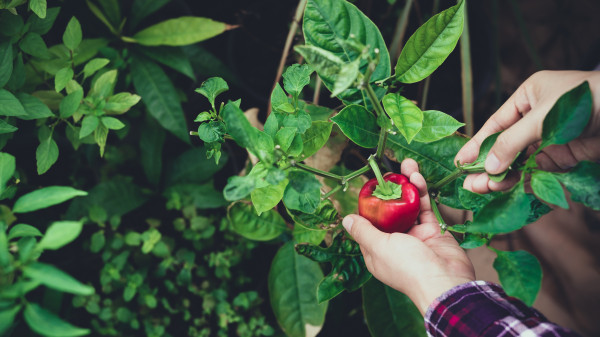The British Dietetic Association says figures suggest as much as 30 per cent of global greenhouse gas emissions are linked to the food industry.
This can be attributed to high levels of food waste and an increased demand on the meat industry, increasing environmental effects.
Deforestation for agricultural purposes is also contributing to the loss of biocultural and agricultural diversity.
On August 1, Australia celebrates National Tree Day, an event co-founded in 1996 by Planet Ark and Olivia Newton-John. What started humbly blossomed quickly into Australia’s largest community tree-planting and nature protection event.
The aim is to plant more than one million new trees, shrubs and grasses each year.
Schools Tree Day is earmarked for the last Friday in July. It is a fantastic educational opportunity to involve children in the initiative. It includes environmental sustainability and sustainable eating is a core concept.
What is a sustainable diet?
Sustainable eating or a sustainable diet can be defined as one that has little impact on the environment while contributing to all nutritional needs and food security, for people both today and in the future.
Some of the most important concepts of a sustainable diet include balance, variety and seasonal eating. We do not have to do everything or become eco-perfect, but every little helps.
Tips to eating sustainably
Reduce our food waste. The average household wastes about 30 per cent of food purchased, so there really is more to be done in this space. Blanch vegetables and fruit and put them in the freezer or cook those past their best condition into a pasta bake, curry or chilli. Growing produce is rewarding and sustainable.
Focusing on local seasonal produce:
1. Helps support the local community, contributes less food waste and fewer food miles.
2. The environmental footprint of a plant-based diet is much lower than a meat-based diet and increased consumption of plant-based foods increases the gut microbiome biodiversity, having a positive impact on health. Complete sources of plant-based protein that provide all the essential amino acids we need include, soya products and quinoa. Other sources of plant-based protein are legumes.
3. Plan ahead. Make a meal plan and complementary shopping list. Planning delicious meals and snacks for the week ahead and using a shopping list, will help avoid buying excess food that may perish before we have a chance to eat it.
4. Look out for food labels that are certified. Fairtrade marks products sourced from farmers and workers employed in developing countries. RSPCA Assured is an assured label showing that animals have had a better quality of life before being used for processing or production.
5. Reuse, recycle and refill. Reusable cups and lunchboxes are great to reduce single-use plastic. If you have a plastic water bottle or plastic bags, keep on reusing them and recycle where possible.
@mindbodynutrition_
www.mindbodynutr.com







